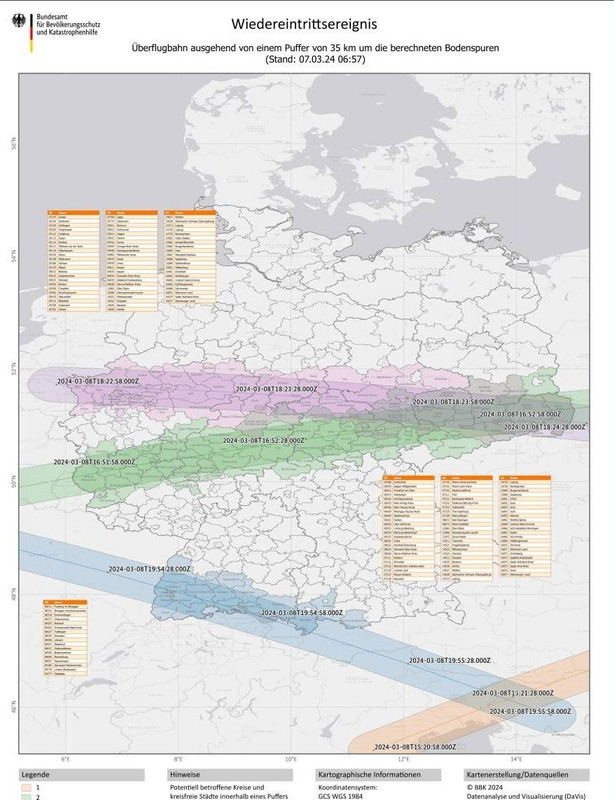5,800 Pounds of Batteries Tossed off the ISS in 2021 will Fall to Earth Today

Space News ,World :- A massive leftover, almost 3-ton in weight, that was thrown out from the International Space Station (ISS) is getting close to reentering Earth. Back in March 2021, the space station let go of the hefty Exposed Pallet 9 (EP9), making it the biggest object ever tossed from the ISS. This is a usual way of getting rid of used or unnecessary stuff on the space station because these objects usually burn up harmlessly in Earth's atmosphere.
Before EP9 makes its way back, the Federal Office for Civil Protection and Disaster Relief in Germany issued a warning. They said, "Between midday on March 8 and midday on March 9, a larger space object is expected to re-enter the Earth's atmosphere and possibly fragment." The object in question is battery packs from the ISS, and there might be bright lights or even a sonic boom when it happens. The warning center mentions that the chances of debris hitting Germany are very low, but if the risk goes up, they will provide new information.
Astronomer Jonathan McDowell from the Harvard–Smithsonian Center for Astrophysics shared on social media that the battery is likely to reenter between 7:30 a.m. ET on March 9 and 3:30 a.m. ET on March 9.
Germany's Federal Office for Civil Protection and Disaster Relief even made a map showing possible paths for the battery pallet.

A map of Germany showing streaks indicating where the reentry could take place.
(Image credit: Federal Office for Civil Protection and Disaster Relief, National Warning Center 1)
Before it reenters, satellite tracker Marco Langbroek saw the battery passing over the Netherlands and shared a video on X (formerly Twitter).
EP9 is carrying old Nickel-Hydrogen batteries, as NASA explained when it was thrown out. They mentioned that EP9 is about the size of a large SUV and estimated it would re-enter Earth's atmosphere in two-to-four years.
The ISS received EP9 from Japan's HTV-9 (Kountori 9) on May 20, 2020. EP9 had six Lithium-Ion battery Orbital Replacement Units (ORUs) that replaced existing ISS Nickel-Hydrogen batteries during a spacewalk by astronauts.


